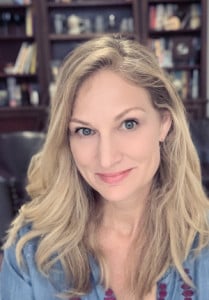Non-Fiction - Self Help - Business - Mindset -Audiobook -Strong Female
Description
Vocal Characteristics
Language
EnglishVoice Age
Middle Aged (35-54)Accents
North American (General) North American (US General American - GenAM) North American (US Mid-Atlantic) North American (US West Coast - California, Portland)Transcript
Note: Transcripts are generated using speech recognition software and may contain errors.
the mindsets. When I was a young researcher just starting out, something happened that changed my life. I was obsessed with understanding how people cope with failures, and I decided to study it by watching how students grapple with hard problems. So I brought Children one at a time to a room in their school, made them comfortable and then gave them a series of puzzles to solve. The first ones were fairly easy, but the next ones were hard. As the students grunted, perspired and toiled, I watched their strategies and probed what they were thinking and feeling. I expected differences among Children and how they coped with the difficulty, but I saw something I never expected. Confronted with the hard puzzles, 1 10 year old boy pulled up his chair, rubbed his hands together, smacked his lips and cried out. I love a challenge. Another, sweating away on these puzzles, looked up with a pleased expression and said with authority, You know, I was hoping this would be informative. What's wrong with them? I wondered. I always thought you coped with failure or you didn't cope with failure. I never thought anyone loved failure. Who are these alien Children, or were they on to something? Everyone has a role model, someone who pointed the way at a critical moment in their lives. These Children were my role models. They obviously knew something I didn't, and I was determined to figure it out, to understand the kind of mindset that could turn a failure into a gift. What did they know? They knew that human qualities such as intellectual skills could be cultivated. And that's what they were doing. Getting smarter. Not only were they discouraged by failure, they didn't even think they were failing. They thought they were learning. I, on the other hand, thought human qualities were carved in stone. You were smart or you weren't. And failure meant you weren't. It was that simple. If you could arrange successes and avoid failures at all costs, you could stay smart. Struggles, mistakes, perseverance were just not part of this picture. Whether human qualities are things that can be cultivated are things that are carved in stone is an old issue. What these beliefs mean for you is a new one. What are the consequences of thinking that your intelligence or personality is something you can develop as opposed to something that is a fixed, deep seated trait. Let's first look in on the age old, fiercely waged debate about human nature and then return to the question of what these beliefs mean for you.
Tags
Therapist, Instructor, Presenter, Business Woman, Real Person, Articulate, Authentic, Believable, Confident, Conversational, Easygoing, Genuine, Motivational, Approachable, Charismatic, North American (General), North American (US General American - GenAM), North American (US Mid-Atlantic), North American (US West Coast - California, Portland)
